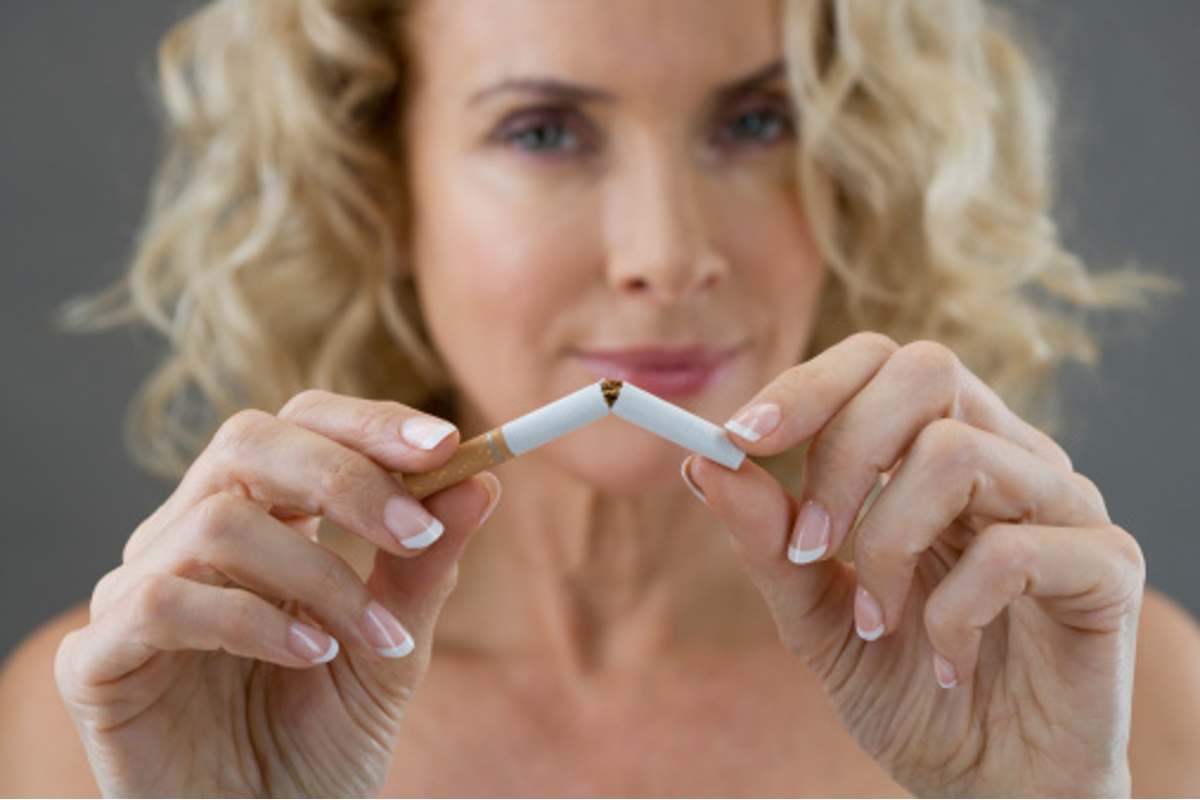Quit Smoking : What to Expect When You Quit Smoking

Quit Smoking: Before we talk about the mental and physical challenges of quitting cigarettes we will discuss whether you are really motivated enough to quit. Many people decide to quit cigarettes and alcohol only to go back on their word in a week’s time or at the first sign of aggravation.
So whether you smoke two packs a day or 10 cigarettes a day you need to first give yourself a concrete deadline; the day, the hour, down to the exact moment you plan to quit. This seems trivial but when you actually come down to it you will realize that you are always putting it off by smoking that one last cigarette.
Now that you have given yourself a deadline and are about to quit you need to realize that it is not very difficult. Yes, it takes a while to get used to it, the first couple of weeks can be mildly irritable or very nauseous depending on your nicotine addiction but many people have successfully quit smoking and so can you. So now that you are mentally prepared to expect the worse, here is what you need to know:
Withdrawal Symptoms – Side Effects Of Quitting Smoking
When we are smoking, nicotine transfers from the lungs into the bloodstream. Nicotine is a stimulant; it increases blood pressure, increases metabolism, and peristalsis (bowel movements) among other things. Your body gets used to this stimulant in the blood and adjusts its chemistry accordingly over time so a sudden absence of this chemical will cause the body to reboot and bring its processes to their original form. This process is what creates withdrawal symptoms. Here is what people may experience:
- Dry mouth
- Mood swings
- Eating disorder
- Sleeping disorder
- Excessive sweating
- Flu-like symptoms
Also Read: Quit Smoking : Regain the Healthy Life
These are the symptoms seen in mild cases; however, in severe cases, symptoms can also include:
- Constipation
- Diarrhea
- Headaches
- Itchy hands and feet
- Dizziness
Positive Effects Of Quitting Smoking
But apart from the worst effects of these symptoms, you will notice good things happening to you as well.
- Your blood pressure will lower as the body gets rid of all the residual nicotine just 20 minutes after you have quit smoking.
- The oxygen supply in the blood will increase eight hours after quitting. This is due to the drop in carbon monoxide levels in the blood.
- Those who experience a chronic breathing problem may find that it is getting better.
- Over your risk of suffering a heart attack decreases by about a day after quitting.
In all probability, you will require some form of help and that is nothing to feel embarrassed about. If these symptoms last for more than a week you might want to consult a doctor. A doctor can prescribe a withdrawal program, and ask you to use a nicotine patch or gum.
Also Read: Are E-Cigs Really Smoke-Free?